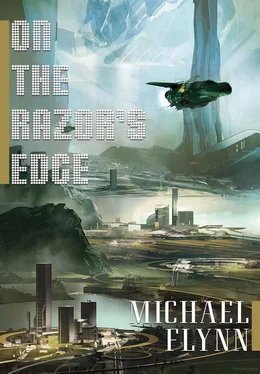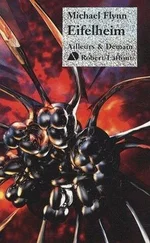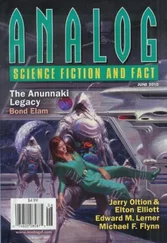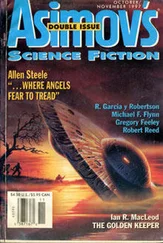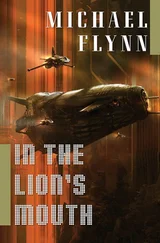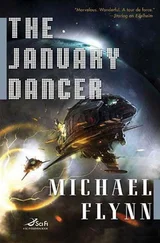The essence of The Missing Man was to create the illusion of a presence from the fact of an absence. Donovan knew people who could appear to be absent even when present. Greystroke Hound was a past master of that art. But the real trick was to appear to be present even when not. To accomplish that feat, Donovan chose Pyati and Eglay Portion.
As Magpie One Padaborn, Pyati had to be in on it. He controlled Donovan’s calendar, could cancel appointments, tell people that they “just missed” the boss, and give Donovan’s residence the appearance of being lived in. Beds would be mussed. Meals would be cooked (and consumed). Spools and bubbles would be left about. Eglay Portion was seneschal of the Forks and could game the system in ways that Pyati could not. He could set up exercises, bouts, exits from and reentries to the compound, and create evidence that Padaborn had been in this or that building. That would be tricky because Magpie Two Gidula monitored the system and she was remorselessly attentive.
Donovan could not expect to fool Gidula for very long. At some point, Two would compare visual surveillance data to the building entry logs. But the scarred man did not desire a long tomfoolery. It need only be long enough for him to drop out of sight. The Fudir had chummed the understaff and crossed certain palms with silver. This had secured him a great deal of useful information on places to go in Ketchell.
“I need to get away,” Donovan told his coconspirators by the koi pond. “I need to be by myself, relax, see the sights. If I can get my mind off everything that has happened these past few months, maybe I can remember what the Revolution needs me to remember.” He needed, of course, to give them a reason they could agree with.
Pyati nodded. “A fight with Ekadrina would fuddle any man.”
And it had killed Ravn, Donovan recalled. He remembered his quondam kidnapper capering past him through Oschous’s command post, running out through the burning warehouse to her doom at the hands of the loyalist champion. Suddenly weak in his legs, Donovan lowered himself to the bench. Fish, attracted by his shade, clustered for the expected treats.
“What is it?” Eglay asked him.
“I was thinking on poor Ravn,” the scarred man told him.
Eglay nodded. “A bold colleague,” he agreed.
“You miss her,” said Pyati, sitting beside him.
“I never thought I would. My first thought after she snatched me was how I might slay her and escape. But she died for my sake.”
“I’m sure that was not her plan,” said Eglay.
“Is no big deal, dying,” said Pyati. “It’s something we all do, at least once.”
Donovan grimaced. “At least,” he said.
“Well, you did, no? Technically, you were in the tank for one, two days dead. And here are you, good as new. And Ravn, when we dropped her at Delpaff, was hearty as a kitten.”
Donovan grabbed the magpie’s sleeve. “What? She’s alive?”
Pyati disengaged from the clutching hand. “When last I saw her. Why? Did Gidula say otherwise?”
“That son of a…” But the Pedant recalled that Gidula had said only, Alas, the Ravn is no longer with us and when Donovan had mentioned Ravn’s death the Old One had not corrected him. Oh, Gidula was an exquisite liar! He could spin a fantasy by telling the stone-cold truth.
Eglay too was surprised. “Ravn’s not dead? Gidula has said nothing.”
Pyati shrugged. “She offended him over some matter, and he is not speaking her name until she brings him a present.”
Donovan knew what the offense must have been. When she had rushed forth wearing Padaborn’s colors, Ravn had joined the Revolution wholeheartedly—and Gidula was inside the Revolution in order to subvert it.
“Well,” Donovan said, placing a hand on each knee and pushing himself erect. “Perhaps I will have a present for him, too.”
* * *
The three of them departed by aircar the next day, ostensibly to show Donovan the wonders of Ketchell. Pyati assured him that these wonders were not so numerous as to require the entire day, and the fact proved as true as the word. Ketchell was a crescent of low buildings, none more than ten stories high, around a circular harbor formed, according to local folklore by a stone dropped by the god who built the sky-vault. Donovan supposed it a remnant of the Cleansing and spent long moments on the quayside watching the waters break along its rim.
“What was Ketchell called before it was Ketchell?” he asked his companions.
Eglay Portion shrugged. “As far as I know, it was always Ketchell. There are traces of buried ruins farther inland, though, where the shoreline used to be before the ice sucked up all the water. There are supposed to be layers of successive cities there going back to ancient times.”
Donovan wanted very much to visit those ruins, which he took to be those of Ũāvajorque, but he could not spare the time for it now. He and Eglay and Pyati retired to a quayside restaurant where they huddled with other diners around a radiant fireplace and consumed large steaks of a fatty meat and root vegetables cooked nearly to sludge. “City’s not noted for its chefs,” Eglay commented superfluously.
Donovan looked around the dim-lit room. It reminded him a little of Gatmander: cold and lonesome, and despair coating everything like a fine dusting of grit. “This must be some happening place during the winter,” he said.
Eglay shrugged. “We usually bunker up at the Forks. And there isn’t much that is more cheerful than evergreen boughs and hot-rod wine and a roaring fire come Midwinter Eve and a visit from Sĩgyawn Yowshã. But I hear down here in the city the suicide rate always spikes that time of year.”
Donovan wondered that they had not used everyone up by now.
Pyati shrugged. “Usually off-planet, me.”
“They say the ice came on sudden,” Eglay volunteered. He raised a fatty slice of beeshun to his lips and chewed thoughtfully. “Something like,” he said, then swallowed. “Something like the ice caps—you’d think they’d always been there. But the locals tell me it was only a century or two from a nice, pleasant, temperate world to … a wall of white along the north.”
Pyati said, “When did it happen?”
Eglay waved his now-empty fork in spirals and intoned, “‘In the time before my grandfather’s grandfather.’”
Donovan grunted. “Back then, was it? Surely there are records in archives somewhere. This world was civilized longer than any other in the Spiral Arm.”
“Sure, but only the mountains last forever. There’s a town over the other side of the world has a clay brick with writing on it that goes back to prehistoric times. I seen it myself, but it looks like chicken tracks to me, and no one knows how to read it. But there was war and fire and mice and all what have you. There was a long Dark Age when almost nothing was recorded.”
“Nothing at all?”
“Gidula told me that things had been ‘written in the sand.’ He said that meant ‘in silicon.’ It was all digital bits and you needed special machines to read them, and—”
“I can guess the rest,” Donovan said. “New technology. New machines. Pretty soon they couldn’t read the old storage devices, and the media eventually decayed.”
“Crazy people. The sign by the Iron Bridge is about the only thing left from that era. We got the better idea: something works, don’t change it.”
“And if it doesn’t work?”
Eglay Portion laughed. “Don’t change that, either. Might get worse.”
* * *
After dinner, Eglay and Pyati flew back to the Forks where, using this stratagem or that, they would create the illusion that Donovan had returned with them. Donovan for his part shook the dust from his feet and went off in search of a foo-doctor whose name he had extracted from the Assistant Undercook of the Common Mess. (He had been surprised at the extent to which the kitchen staff emulated the manners of the Shadows. The Chief of the Cuisine cooked nothing himself but sat in a great chair much like a throne set in the center of the kitchen while others in strict hierarchy cooked, baked, washed, and served—and brought things to him for taste and approval.)
Читать дальше
